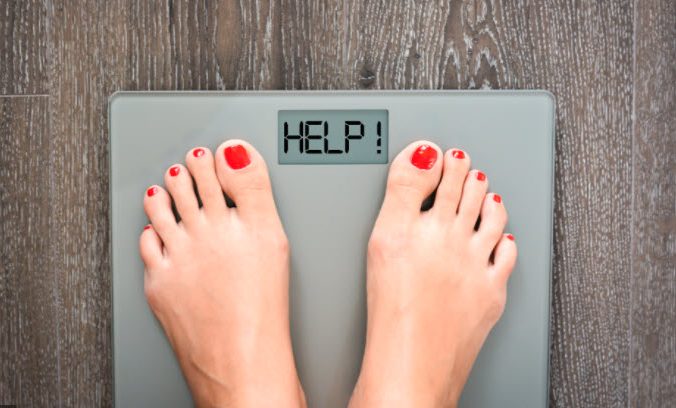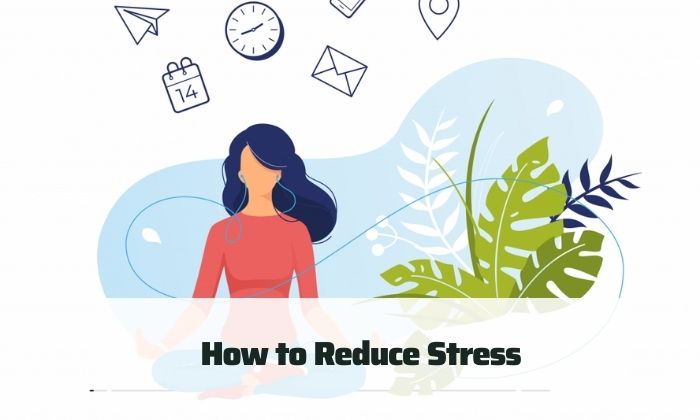How to Lose Weight – Step-by-step Guide

While there are a plethora of diets, pills, and meal replacement plans claiming to help you lose weight quickly, the majority of them lack scientific backing. There are, however, some scientifically validated weight-loss strategies.
Exercising, keeping track of calorie consumption, intermittent fasting, and lowering carbohydrate intake are some of these measures.
How to lose weight? In this post, we’ll look at nine weight-loss strategies.

What’s the best diet for healthy weight loss?
Pick almost any diet book, and it will promise to have all the secrets to losing and keeping the weight off. Some argue that the solution is to eat less and exercise more, while others argue that low fat is the only way to go and that carbs should be avoided. So, what are you supposed to believe?
The truth is that there is no such thing as a “one-size-fits-all” strategy to long-term, healthy weight loss. Because our systems respond differently to different foods depending on genetics and other health considerations, what works for one person may not work for you. Finding the weight-loss approach that works for you will take time, patience, commitment, and some experimenting with different meals and diets.
While some people respond well to calorie counting or other stringent weight-loss approaches, others prefer more flexibility in their weight-loss plans. Simply avoiding fried foods or reducing refined carbs can put them on the road to success. So, if a diet that worked for someone else doesn’t work for you, don’t get disheartened. Also, don’t be too hard on yourself if a diet proves to be too restrictive for you to maintain. Finally, a diet is only good for you if you can maintain it over time.
While there is no quick answer for losing weight, there are several measures you can take to build a healthier relationship with food, reduce emotional overeating, and maintain a healthy weight.
Four popular weight loss strategies
1. Cut calories
Some experts feel that keeping your weight under control boils down to a simple equation: eat less calories than you burn, and you’ll lose weight. Doesn’t it appear to be simple? So, why is it so difficult to lose weight?
- Weight loss isn’t a process that happens in a straight line over time. When you reduce your calorie intake, you may lose weight for the first few weeks, but then something happens. You consume the same number of calories as before, but you lose less or no weight. Because when you lose weight, you lose water and lean tissue as well as fat, your metabolism slows, and your body changes in other ways, your metabolism slows and your body changes in other ways. So, if you want to keep losing weight each week, you’ll need to keep lowering calories.
- A calorie is not necessarily the same as a calorie. Eating 100 calories of high fructose corn syrup vs 100 calories of broccoli, for example, can have a different effect on your health. The key to long-term weight loss is to eliminate items that are high in calories but don’t fill you up (such as candy) and replace them with foods that are filling but low in calories (like vegetables).
- Many of us don’t eat solely to satiate our hunger. We also turn to food for comfort or to reduce stress, which can derail any weight-loss goal rapidly.
2. Cut carbs
A new perspective on weight loss identifies the issue as not one of taking too many calories, but rather the way the body stores fat after consuming carbohydrates—specifically, the role of the hormone insulin. Carbohydrates from food enter your bloodstream as glucose when you eat a meal. Your body always burns glucose before it burns fat from a meal in order to keep your blood sugar levels in check.
When you consume a carbohydrate-rich meal (like a lot of pasta, rice, bread, or French fries), your body releases insulin to help handle the inflow of glucose into your bloodstream. Insulin accomplishes two things in addition to managing blood sugar levels: it stops fat cells from releasing fat for the body to burn as fuel (since the body’s priority is to burn off the glucose) and it makes new fat cells to store whatever your body can’t burn off. As a result, you acquire weight and your body demands more fuel to burn, causing you to eat more. Because insulin can only burn carbohydrates, you crave them, which sets in motion a vicious cycle of food consumption and weight gain. To reduce weight, the logic goes, you must break the pattern by eating fewer carbs.
Most low-carb diets recommend replacing carbs with protein and fat, which may have long-term health consequences. If you do decide to follow a low-carb diet, choose lean meats, fish, and vegetarian protein sources, low-fat dairy products, and plenty of leafy green and non-starchy vegetables to lower your risks and limit your saturated and trans fat intake.
3. Cut fat
It’s a tenet of many diets: don’t eat fat if you don’t want to gain weight. Reduced-fat snacks, dairy, and packed meals can be found in almost every grocery store aisle. However, as our low-fat options have grown in popularity, so have obesity rates. So, why haven’t low-fat diets proven to be effective for a greater number of people?
- Fat isn’t always awful. fats, often known as “good” fats, can help you lose weight, manage your moods, and battle fatigue. Avocados, almonds, seeds, soy milk, tofu, and fatty fish are high in unsaturated fats, which can help you feel full, while a little flavorful olive oil drizzled over a plate of veggies, for example, can make it easier to eat healthy food and improve the overall quality of your diet.
- We frequently make poor trade-offs. Many of us make the mistake of substituting fat for sugar and refined carbohydrates, which provide empty calories. Instead of eating full-fat yoghurt, we eat low- or no-fat alternatives that are high in sugar to compensate for the flavor loss. Alternatively, we may substitute a muffin or donut for our fatty breakfast bacon, resulting in high blood sugar rises.
4. Follow the Mediterranean diet
The Mediterranean diet emphasizes consuming healthy fats and carbohydrates, as well as plenty of fresh fruits and vegetables, nuts, seafood, and olive oil—with very little meat and cheese. However, the Mediterranean diet is much more than just food. Regular physical activity and communal meals are also important components.
Whatever method you use to lose weight, it’s critical to stay motivated and avoid common dieting traps like emotional eating.

9 weight loss tips
Here are nine additional weight-loss suggestions:
- Breakfast should be high in protein.
- Limit sugary drinks and fruit juice. Eating a high-protein breakfast may help minimize cravings and calorie intake throughout the day. Sugar calories are useless to your body and might sabotage weight loss.
- Keep yourself hydrated. Drink half your body weight in ounces of water throughout the day (choose weight-loss-friendly foods). Some foods are more effective than others in terms of weight loss. Here’s a list of weight-loss-friendly foods that are also healthful.
- Increase your fiber intake. Fiber consumption has been linked to weight loss in studies. Whole grains, fruits, vegetables, nuts, seeds, and other high-fiber foods contain fiber.
- Make a cup of coffee or tea. Caffeine may aid in the acceleration of your metabolism. There’s no need to go overboard on the caffeine, and sugar should be avoided in these drinks.
- Whole foods should be the foundation of your diet. They are more nutrient-dense, satisfying, and less prone to lead to overeating than processed foods.
- Slowly eat. Eating hastily can result in weight gain over time, whereas eating slowly makes you feel more satisfied and increases the production of weight-loss hormones.
- Get some restful sleep. Sleep is vital for a variety of reasons, and lack of sleep is one of the leading causes of weight gain.
Takeaway
When it comes to weight loss, it’s vital to realize that there are no quick answers. Eating a nutritious, well-balanced diet is the greatest method to achieve and maintain a healthy weight.
This should consist of 10 servings of fruits and vegetables, as well as high-quality protein and entire carbohydrates. Exercising for at least 30 minutes every day is also useful. See more useful article at my website y2kcenter.org




